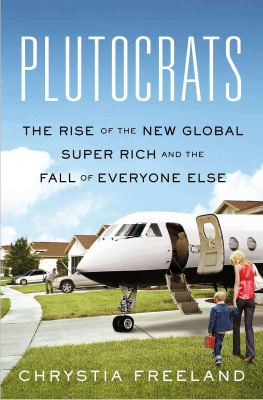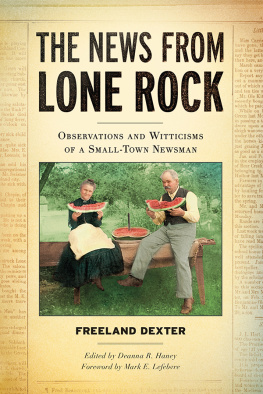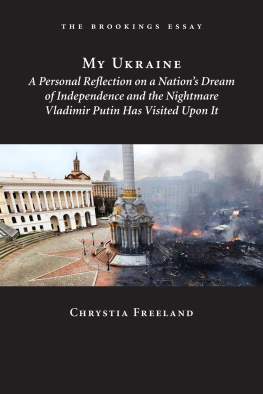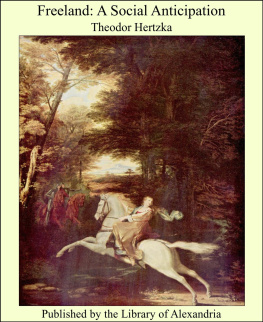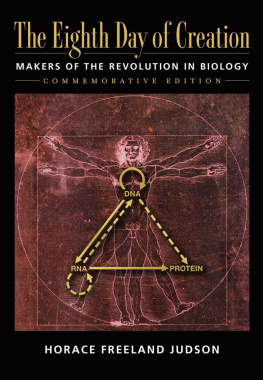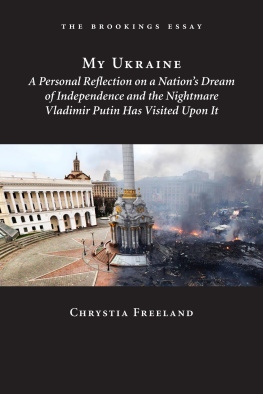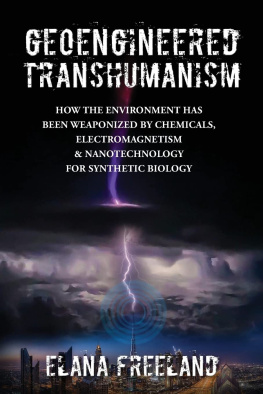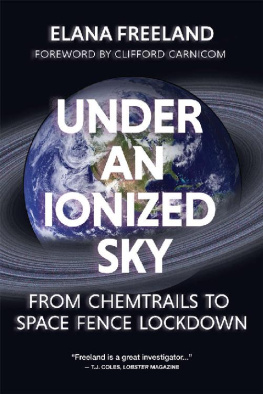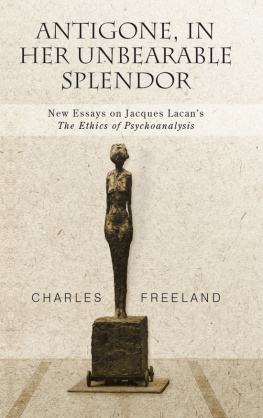Freeland - But is it art?: an introduction to art theory
Here you can read online Freeland - But is it art?: an introduction to art theory full text of the book (entire story) in english for free. Download pdf and epub, get meaning, cover and reviews about this ebook. City: Oxford, year: 2002;2012, publisher: Oxford University Press, genre: Art. Description of the work, (preface) as well as reviews are available. Best literature library LitArk.com created for fans of good reading and offers a wide selection of genres:
Romance novel
Science fiction
Adventure
Detective
Science
History
Home and family
Prose
Art
Politics
Computer
Non-fiction
Religion
Business
Children
Humor
Choose a favorite category and find really read worthwhile books. Enjoy immersion in the world of imagination, feel the emotions of the characters or learn something new for yourself, make an fascinating discovery.

But is it art?: an introduction to art theory: summary, description and annotation
We offer to read an annotation, description, summary or preface (depends on what the author of the book "But is it art?: an introduction to art theory" wrote himself). If you haven't found the necessary information about the book — write in the comments, we will try to find it.
Freeland: author's other books
Who wrote But is it art?: an introduction to art theory? Find out the surname, the name of the author of the book and a list of all author's works by series.
But is it art?: an introduction to art theory — read online for free the complete book (whole text) full work
Below is the text of the book, divided by pages. System saving the place of the last page read, allows you to conveniently read the book "But is it art?: an introduction to art theory" online for free, without having to search again every time where you left off. Put a bookmark, and you can go to the page where you finished reading at any time.
Font size:
Interval:
Bookmark:
But is it art?
An introduction to art theory
Cynthia Freeland is Professor of Philosophy at the University of Houston. She has published on topics in the philosophy of art and film, ancient Greek philosophy, and feminist theory. She is also author of The Naked and the Undead: Evil and the Appeal of Horror (1999) and co-editor of Philosophy and Film (1995).
So many of the questions that define us as a culture have been raised through and by the art of recent decades, that without coming to terms with our art, we can scarcely understand ourselves. Cynthia Freeland has written a very smart book, in which high philosophical intelligence is applied by a contemporary sensibility to difficult questions raised by real works of art. It immediately situates the reader where thought and action meet, and since the issues are inescapable, it should be required reading for everyone. I know of no work that moves so swiftly and with so sure a footing through the battle zones of art and society today.
Arthur C. Danto, Columbia University
Chapters on gender, money and the marketplace, and on the uses and abuses of primitive motifs in contemporary art making are models of judicious clarity.
Publishers Weekly
highly informative Freelands study is clearly and enthusiastically written
Gerald Cipriani, Journal of Art and Design Education
a vibrant study of a complex and contentious field of artistic endeavour and enquiry lucid, incisive, and thought-provoking.
Murray Smith, University of Kent
Freeland provides a unique and inclusive view of the past by discussing it from the vantage point of contemporary art.
Lucy R. Lippard, author of Mixed Blessings:
New Art in a Multicultural America
the court of Louis XIV, aboriginal tourist art, and the digital revolution Freeland has managed to distil theories of art, the history of aesthetics, and a selected tour of art history into a brief and eminently informative text
Carolyn W. Korsmeyer, State University of New York
a lively, eminently readable and remarkably wide ranging discussion of issues germane to the field of contemporary art. A delight.
Eleanor Heartney, author of Critical Condition:
American Culture at the Crossroads
COVER ILLUSTRATION: Painter William Conger created Crossfire Cow for the summer 1999 Chicago public art display CowParade. This exhibition, a successor of CULTURE IN ACTION in 1993 (discussed in of this book) was the most successful public art program in the citys history. More than 300 life-sized fiberglass cows were individually decorated by recognized and outsider artists, then displayed around the city. Many were later sold in a cattle auction with proceeds going to charity (to the tune of $3.4 million). Artist Conger, a Chicago-area painter and art professor, has explained that he made his cow both in fun and as a serious work with art historical references. His title alludes to the crossfire in modernist and postmodernist art criticism and theory. Originating in Zurich and then moving to America with the successful Chicago installation, CowParade has gone on to become a franchise, with parades in New York, Houston, and other cities; Cow-Parade London was postponed in summer 2001 due to sensitivities concerning the Foot and Mouth epidemic.
AN INTRODUCTION TO ART THEORY
Cynthia Freeland


Great Clarendon Street, Oxford OX2 6DP
Oxford University Press is a department of the University of Oxford.
It furthers the Universitys objective of excellence in research, scholarship,
and education by publishing worldwide in
Oxford New York
Athens Auckland Bangkok Bogot Buenos Aires Cape Town
Chennai Dar es Salaam Delhi Florence Hong Kong Istanbul Karachi
Kolkata Kuala Lumpur Madrid Melbourne Mexico City Mumbai Nairobi
Paris So Paulo Shanghai Singapore Taipei Tokyo Toronto Warsaw
with associated companies in Berlin Ibadan
Oxford is a registered trade mark of Oxford University Press
in the UK and in certain other countries
Published in the United States
by Oxford University Press Inc., New York
Cynthia Freeland 2001
The moral rights of the author have been asserted
Database right Oxford University Press (maker)
First published 2001
First published as an Oxford University Press paperback 2002
Also available in paperback as Art Theory: A Very Short Introduction
All rights reserved. No part of this publication may be reproduced,
stored in a retrieval system, or transmitted, in any form or by any means,
without the prior permission in writing of Oxford University Press,
or as expressly permitted by law, or under terms agreed with the appropriate
reprographics rights organizations. Enquiries concerning reproduction
outside the scope of the above should be sent to the Rights Department,
Oxford University Press, at the address above
You must not circulate this book in any other binding or cover
and you must impose this same condition on any acquirer
British Library Cataloguing in Publication Data
Data available
Library of Congress Cataloging in Publication Data
Data available
ISBN 0192853678
5 7 9 10 8 6
Typeset in New Baskerville
by RefineCatch Limited, Bungay, Suffolk
Printed in Spain by
Book Print S.L., Barcelona
To Herbert Garelick
Deepest thanks to people who read and commented on the entire manuscript: Oxfords Reader 3 (unveiled as Murray Smith), Jennifer McMahon, Mary McDonough, and my parents, Alan and Betty Freeland. Carolyn Korsmeyer made valuable suggestions, and Kristi Gedeon was a research assistant beyond comparecheery, resourceful, a packhorse for heavy books! Thanks to others for generous help with the text or illustrations: Robert Wicks, Nora Laos, Weihong Kronfied, Sheryl Wilhite Garcia, Jeannette Dixon, Eric McIntyre, Lynne Brown, Rose Lange, Anne Jacobson, William Austin, Justin Leiber, and Amy Ione. My husband, Krist Bender, supplied technical assistance and artistic opinions. I am much indebted to Oxfords capable editor, Shelley Cox. Heartfelt appreciation to the guinea pigs for this text, my students in Philosophy 1361you made a bigger difference than you suspect. A more indefinite thanks for their stimulating influence to my friends in the exciting art world of Houston. I dedicate this book to my first professor of aesthetics, Herbert Garelick, of Michigan State University.
I Andres Serrano, Piss Christ (1987)
Courtesy Paula Cooper Gallery, New York
II Iznik tiles
The British Museum
Huichol bead art
Photograph: Cynthia Freeland
III Barry McGee, Hoss
Rice University Art Gallery. Photo: Tommy Lavergne
IV Tibetan monk erasing mandala painting
Drepung Loseling Monastery, Inc. Tibetan monks sand-painting (18)
V Georgia OKeeffe, Red Canna
collection of the University of Arizona Museum of Art, gift of Oliver James.
ARS, NY, and DACS, London 2000
VI Francis Bacon, Triptych (MayJune 1973)
Estate of Francis Bacon/ARS, New York, and DACS, London 2000
VII Bill Viola, Chott el-Djerid
Courtesy Bill Viola Studio. Photograph: Kira Petrov
VIII Jim Clarage and dadaNetCircus: Jonah and the WWWhale
Next pageFont size:
Interval:
Bookmark:
Similar books «But is it art?: an introduction to art theory»
Look at similar books to But is it art?: an introduction to art theory. We have selected literature similar in name and meaning in the hope of providing readers with more options to find new, interesting, not yet read works.
Discussion, reviews of the book But is it art?: an introduction to art theory and just readers' own opinions. Leave your comments, write what you think about the work, its meaning or the main characters. Specify what exactly you liked and what you didn't like, and why you think so.

